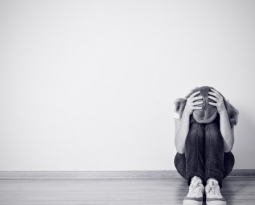
Looking for Relief from Anxiety and Panic?
I often talk with clients who’s lives have become so stressful that they start to experience symptoms of anxiety and panic. It can feel as if life is out of control. If you can relate to this, keep in mind that you’re in the driver’s seat and even when it feels like things are completely out of your control, you always have the choice of where to place your attention. That is where your freedom lies and when you begin to exercise that freedom, your confidence grows.
While struggling with anxiety is a scary and often overwhelming battle at times, the fact that you do have the freedom I referred to means you can find your footing and defeat this particular demon. It only has as much power as you give it, and as soon as you take a stand, you can watch it start to dissolve.
Anxiety tends to affect the whole being. On a physiological level anxiety that may include bodily reactions such as rapid heartbeat, trembling or shaking, dizziness, shortness of breath, numbness or tingling in hands, hot flashes or chills. On a psychological level, it can cause you to feel detached from yourself and even fearful of dying or going crazy or out of control. It can also sabotage your ability to act, express yourself or deal with certain everyday situations.
When it comes to panic, the more knowledge you have, the more in control of the anxiety you’ll feel. It’s helpful to track the cycles. Remember one of your recent episodes. There is usually something that initiates or triggers the panic, which leads to a slight increase in unusual or unpleasant bodily symptoms, like heart palpitations, dizziness, tingling etc., which leads to an increased focus on the symptoms, making them more noticeable and easily magnified, which leads to catastrophic thinking (telling yourself the symptom is dangerous and anticipating that it will get worse) which leads to panic! Quite a vicious cycle, isn’t it? The good news is that it is possible to intervene at any point in this sequence. The most important place to step in is by learning to stop interpreting unpleasant bodily sensations as being dangerous or potentially catastrophic.
Here’s a little exercise to help you to do this. Begin to keep a journal recording two things. The first describes bodily symptoms and the second involves the catastrophic statements that you are most likely to tell yourself in response to each bodily symptom. Then write a different, more positive conclusion.
Here’s a series of coping strategies that will assist in recovering from panic and anxiety. All recovery happens one step-at-a-time. The following are five simple ways of coping when you feel some fear arising:
- RETREAT: Leave the situation temporarily with the intention of returning when you feel better. Use this strategy when you are in coping with marked anxiety, which isevidenced by the above symptoms mentioned.
- TALK TO ANOTHER PERSON, which gets your mind off of your panic symptoms andanxious thoughts.
- MOVE AROUND OR ENGAGE IN PHYSICAL ACTIVITY: This helps to dissipate the extra energy or adrenaline created by the fight or flight reaction.
- STAY IN THE PRESENT: Focus on concrete objects around you in your immediate environment. Use the 555 Technique: Look at, touch and listen to five objects and sounds in your environment. This grounds you and prevents you from experiencing that spacey, detached feeling.
- ENGAGE IN SIMPLE REPETIVE ACTIVITY:
- Count backwards from 100 by 3’s
- Snap a rubber band against your wrist.
- While driving, count the number of cars you see.
- Sing.
- Recite a memorized phrase or poem.
- This list can be indefinite.
Often when emotions become extreme, it’s because they are trying to tell us something that we’re not listening to. At first they whisper but eventually these feelings may be shouting in a way that requires one’s attention. If these symptoms could talk, using language other than feeling, it can be powerful to ask what these symptoms are saying?
If you would like to explore this further, it’s helpful to see a professional counsellor to gain the support you may need as you take a stand and get back to the more peaceful self that you’re ready to embrace.






